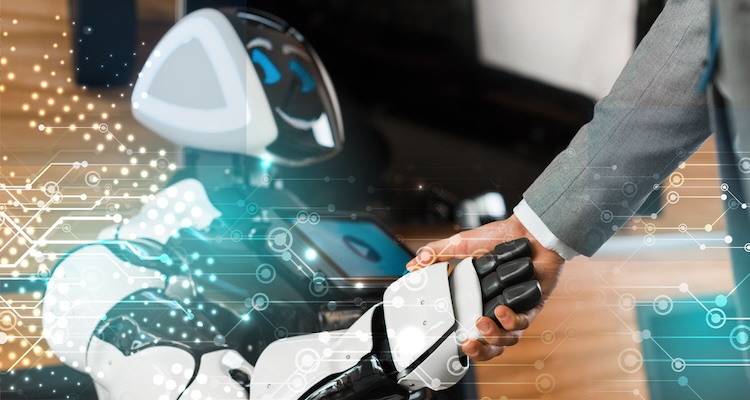Everyone’s Talking: Scientists Explore Rising Number of Erotic Chatbot Studies
Sign sexually/emotionally fulfilling digital relationships are being taken seriously?

Led by Nicola Döring, Professor of Media Psychology and Media Design at Ilmenau, Germany’s Technische Universität, a team of researchers conducted a narrative literature review that documents a remarkably high increase in academic works from 2020-2024 examining the potential effects artificial intelligence technology could have on human sexuality.
As their paper’s purpose of review initially states, while conducted by German academics, they limited their scope to English-language papers, “Millions of people now use generative artificial intelligence (GenAI) tools in their daily lives for a variety of purposes, including sexual ones. This narrative literature review provides the first scoping overview of current research on generative AI use in the context of sexual health and behaviors.”
Though not expressly mentioned by Döring and the rest of the paper’s authors, this steadily growing recognition of AI companionship’s often emotional and sexual interactions with their users could be a sign they’re not only being taken seriously by scientists but might also reduce or perhaps help eliminate much of the social stigma still attached to human/artificial intelligence relationships.
AI, what is it good for?
Of the eighty-eight peer-reviewed studies the team reviewed on the four main areas of AI use in sexual health and behaviors among the general population, thirty-six documented curiosity about “the production, uses, and consequences of–as well as the countermeasures against–non-consensual deepfake pornography,” adding there’s a clear absence of research into the ethicacy surrounding AI-generated adult content.
RECOMMENDED READ: Your Digital Darling Just Dissed You–Now What?
Immediately below, twenty-two papers surveyed erotic chatbot interactions, with the team drawing attention to how the studies “also point to risks such as emotional dependence.”
Where, how much, and what does it mean?
The Technische Universität researchers limited their search to three databases of scientific literature: PubMed, specializing in health and medicine; Scopus, a multidisciplinary publication, “making sure that we do not miss related work from social sciences, humanities, or engineering,” and Google Scholar, to aid in contextualizing their research.
Regarding AI sexual or romantic interactions, the team’s analysis of 2020 to 2024 literature raised several concerns, such as whether erotic chatbots may aid in coping with or in some way exacerbate loneliness and how “AI intimate relationships develop over time, from infatuation to break-up?”
Moving forward—or not?
It’s important to note that the Technische Universität team was drawing on not their studies but rather examining five years’ worth of information conducted by other researchers.
This narrative search study not only researched what has been researched but also identified research gaps in four different categories of AI/human interactions related to sexual health and expression, including sexual and romantic interactions.
The Technische Universität paper definitely demonstrates increasing research regarding AI/human interactions may indicate a growing acceptance of such relationships.
Time will tell
I’d like to steer things in a slightly more positive direction by paraphrasing Oscar Wilde: “The only thing worse than being talked about is not being talked about.” While so many scientists seem to have come to somewhat negative conclusions—through bias or otherwise—so many working in the field may prove to be positive.
I look forward to seeing an increase in studies that examine the potential benefits of artificially intelligent companions, which have done wonders for improving the emotional as well as sexual health and happiness of their human partners.
In other words, the next five years may bring not only more well-researched papers but also ones studying why, despite all these could-be, might-be fears, AI play, and fulfilling emotional digital companion relationships are increasingly popular—as well as happy and healthy.
Image Source: Depositphotos

















